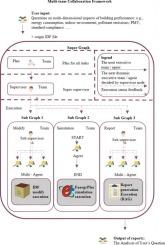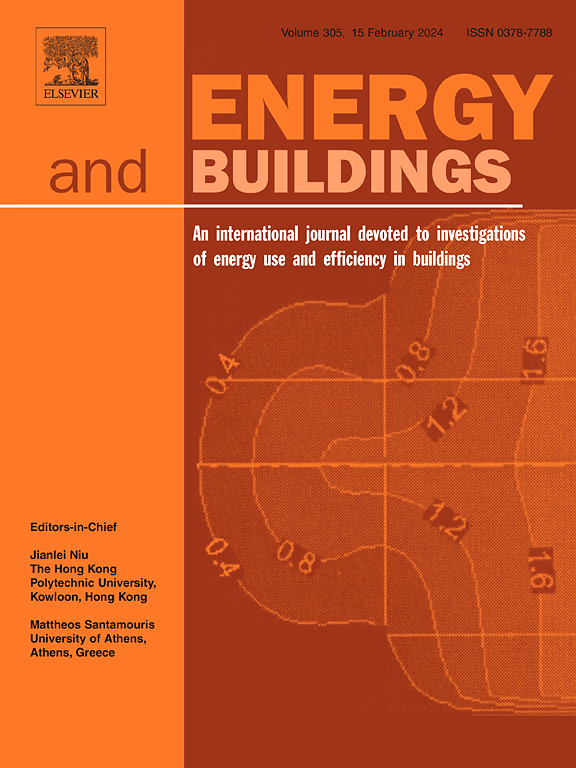AutoBEE: A hierarchical multi-agent approach for energy and environmental parameter analysis
IF 7.1
2区 工程技术
Q1 CONSTRUCTION & BUILDING TECHNOLOGY
引用次数: 0
Abstract
Traditional approaches to building performance analysis often rely on manual or semi-manual methods, suffering from cumbersome workflows, low efficiency, and high error rates. This study developed AutoBEE, an automated analysis framework for building energy consumption and environmental parameters based on hierarchical multi-agent system integrated with large language models. This framework focused on enhancing the efficiency of individual agent and productive collaboration among agents group. Through the development of a comprehensive agent tool library, the establishment of a multi-level network spanning from teams to agents, the design of a lightweight communication protocol, and the creation of dynamic path planning, AutoBEE achieves autonomous unmanned operation from natural language input to building performance report output. During operation, agents group can exhibit a wide range of capabilities, including but not limited to accurately parsing user instructions, decomposing complex tasks into subtasks, adjusting parameters in the input data file, executing simulation calculations by energy simulation software, and generating structured professional reports. Verified through experiments in 54 typical scenarios, compared with traditional methods, AutoBEE has significantly improved efficiency, accuracy, rationality, content richness, and economic feasibility, providing an innovative solution for building performance research.

AutoBEE:能源和环境参数分析的分层多智能体方法
构建性能分析的传统方法通常依赖于手动或半手动的方法,这些方法的工作流程繁琐,效率低,错误率高。本研究开发了AutoBEE,一个基于分层多智能体系统和大型语言模型集成的建筑能耗和环境参数自动化分析框架。该框架侧重于提高个体代理的效率和代理群体之间的高效协作。通过开发全面的agent工具库,建立从团队到agent的多层次网络,设计轻量级通信协议,创建动态路径规划,AutoBEE实现了从自然语言输入到建筑性能报告输出的自主无人操作。在运行过程中,agent组可以表现出广泛的能力,包括但不限于准确解析用户指令、将复杂任务分解为子任务、调整输入数据文件中的参数、通过能源仿真软件执行仿真计算、生成结构化的专业报告等。通过54个典型场景的实验验证,与传统方法相比,AutoBEE在效率、准确性、合理性、内容丰富性、经济可行性等方面均有显著提升,为建筑性能研究提供了创新解决方案。
本文章由计算机程序翻译,如有差异,请以英文原文为准。
求助全文
约1分钟内获得全文
求助全文
来源期刊

Energy and Buildings
工程技术-工程:土木
CiteScore
12.70
自引率
11.90%
发文量
863
审稿时长
38 days
期刊介绍:
An international journal devoted to investigations of energy use and efficiency in buildings
Energy and Buildings is an international journal publishing articles with explicit links to energy use in buildings. The aim is to present new research results, and new proven practice aimed at reducing the energy needs of a building and improving indoor environment quality.
 求助内容:
求助内容: 应助结果提醒方式:
应助结果提醒方式:


